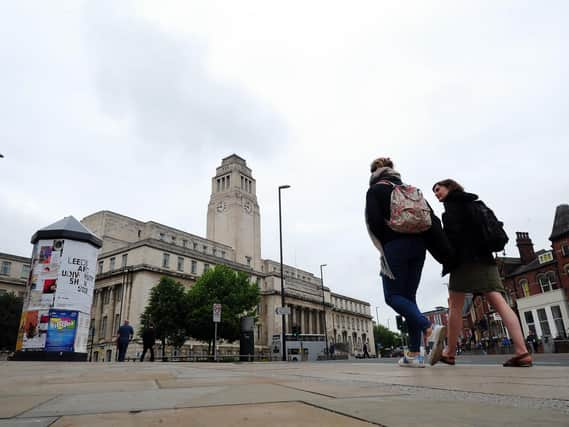Funding cuts risk undermining vital university research - Nick Plant


Yes, the Covid crisis has challenged us in many ways – from the shift to online learning, to the loss of critical research spaces during lockdown – but our resilience and our significance has shone through.
And we all benefit. Vaccines have been developed in university labs, medical and healthcare students have been taught and seconded into an overburdened NHS, and academics have worked with Government to advise them on public health policymaking.
Advertisement
Hide AdAdvertisement
Hide AdAgainst this backdrop it was hugely disappointing to hear that the Government has now decided to dramatically reduce Official Development Assistance (ODA) funding.
It means for the first time since 2013, the UK will not meet the UN recommended target of 0.7 per cent of Gross National Income, despite this being enshrined in law since 2015.
Amongst many other things, this money supports work that benefits some of the most disadvantaged people in the world. So, these aren’t just figures on a spreadsheet – these cuts will have a telling negative impact on the lives and life chances of vast numbers of people across the globe.
Some ODA funding is funnelled through universities, supporting research between the UK and LMICs (Low and Middle Income Countries).
Advertisement
Hide AdAdvertisement
Hide AdThis means that research projects currently underway at Leeds and other universities will be directly impacted – meaning ground-breaking research that is improving lives is at risk.
The university has been highly successful in securing Global Challenge Research Fund (GCRF) and Newton funding during the past few years – both of which are research funding schemes that distribute ODA money.
Examples of the life-changing research funded by ODA at Leeds include working with partners in Africa to train local scientists in the agriculture and food production sectors to help them find ways to achieve food security and eradicate hunger.
Our scientists have also been collaborating with weather forecasters in Ghana, Kenya, Nigeria and Senegal to get access to satellite data that will allow them to track the paths of developing storms, ultimately reducing deaths and economic damage from extreme weather.
Advertisement
Hide AdAdvertisement
Hide AdCalled African SWIFT, the project has fostered a network of operational forecasters and meteorological scientists across Africa who will continue to adapt and improve forecasting techniques in the light of the latest research, creating an important lasting legacy.
Researchers at Leeds are also involved in a five-year GCRF-funded project to investigate how the arts, heritage and human rights education can support young people to rebuild societies divided by past conflict. The work spans 12 post-conflict countries under the banner of Changing the Story.
Another project has seen engineers develop a prototype for low-cost diagnostic medical equipment designed for cancer screening programmes in LMICs.
We are proud of our achievements, but the slashing of ODA funding means we are now left trying to minimise the damage to our research and impact – and to our valued international partners, who have also been hit hard by these cuts.
Advertisement
Hide AdAdvertisement
Hide AdWe are working tirelessly to limit the damage as much as possible, demonstrating once again that as a university community, we can rise to meet difficult challenges head-on and keep to our central mission: to shape our future world for the better.
The cut is also a short-sighted move. Shrinking ODA means that ongoing projects that have been a key vehicle for UK science diplomacy for many years, helping to tackle pressing challenges in developing countries, will be stopped.
This not only undoes years of hard work, but risks damaging the UK’s global reputation and future trade ambitions.
The Government has made various pledges to ensure a ‘Global Britain’ is a ‘science superpower’, to ‘level up’ the country and to support an innovation-fuelled recovery
from Covid.
Advertisement
Hide AdAdvertisement
Hide AdCuts to ODA funding fly in the face of this, and we need the Government to provide urgent clarity on its commitments to research investment so that universities can continue to make that difference, particularly to some of the most vulnerable communities in the world.
Professor Nick Plant is Deputy Vice-Chancellor: Research and Innovation at the University of Leeds.